What is 5-HTP? Benefits, History, and Science of Griffonia Seed Extract
Table of contents

The brain is very complicated, but serotonin makes everything simple. If there is such a thing as a “happiness molecule,” it would be serotonin. This neurotransmitter is in charge of hundreds of bodily processes, and serotonin is perhaps most famous for its effects on mood and awareness.
Molecularly, serotonin is known as 5-hydroxytryptamine, which is then shortened to 5-HT. If that started ringing bells in your head, you’re on the right track. Yes, serotonin, or 5-HT, is highly molecularly similar to 5-HTP (-hydroxytryptophan), and in fact, these substances are practically interchangeable in the body.
5-HTP or 5-hydroxytryptophan is a naturally occurring amino acid that has gained attention in recent years for its potential benefits in supporting mental health and general wellbeing. Derived from the Griffonia seed extract, 5-HTP is a popular supplement often used as an alternative to traditional antidepressant medications.
In this article, learn what 5-HTP is, how the body uses it, its history, benefits, and potential side effects, why we chose Griffonia simplicfolia seed as our source, and much more. Let’s delve into the ancient secrets of the current era’s most popular nootropics, starting with 5-HTP.
The Serotonin Connection
5-HTP is a precursor to serotonin, a neurotransmitter that plays a crucial role in regulating mood, appetite, and sleep. Serotonin is synthesized in the brain and the gastrointestinal tract, and its levels are influenced by various factors, including diet and stress (1). Low levels of serotonin are linked to depression, anxiety, and sleep disturbances(2).
5-HTP supplements help increase serotonin levels in the brain by providing the necessary building blocks for its synthesis. As a result, 5-HTP has gained popularity for its potential benefits in improving mood, sleep, and overall well-being.
5-HTP is present in a few plant species, but it’s only known to be highly concentrated in the seeds of Griffonia simplicfolia, a West African shrub. The usual incentives, such as cost and efficiency, never called for the production of synthetic 5-HTP, but manufacturing methods vary among producers of this popular nootropic. Therefore, diligent research and careful sourcing are the only ways to secure safe and natural 5-HTP.
Why is it called 5-HTP?
Because “5-HTP” is a simple contraction of 5-hydroxytryptophan, the full chemical name of this botanical nootropic substance. Such abbreviations are common in the pharmaceutical and supplement industries, and they serve as easily-accessible shorthands for professionals and consumers alike.
The Conversion of L-Tryptophan to 5-HTP
5-HTP is synthesized from the amino acid L-tryptophan, which is obtained from the diet. Once ingested, L-tryptophan is converted into 5-HTP by the enzyme tryptophan hydroxylase (3). The 5-HTP is then further converted into serotonin by the enzyme aromatic L-amino acid decarboxylase(4). By providing the body with supplemental 5-HTP, the rate-limiting step of serotonin synthesis (the conversion of L-tryptophan to 5-HTP) is bypassed, leading to increased serotonin levels (5).
What is Griffonia Seed Extract Good for?
Griffonia seed extract, the primary source of 5-HTP supplements, is derived from the seeds of the Griffonia simplicifolia plant, native to West Africa. The extract is rich in 5-HTP, which makes it an attractive natural option for promoting mental health and well-being.
Mood Enhancement
Serotonin is known as the “happiness molecule” for a reason. Most drugs targeted at depression affect your serotonergic system in some way. SSRIs (selective serotonin reuptake inhibitors), for instance, increase serotonin levels in your brain directly by bypassing basic neuromechanics.
Several studies have found that 5-HTP may help improve mood in individuals with mild to moderate depression (6). In a randomized, double-blind study, 5-HTP was found to be as effective as the antidepressant fluoxetine in alleviating depressive symptoms (7). Moreover, 5 -HTP is believed to have a faster onset of action compared to traditional antidepressants, which often require several weeks to show effects (8).
5-HTP takes a more subtle approach by mobilising your body’s natural resources to gently promote higher serotonin levels. This nootropic might, therefore, provide milder results than prescription anti-depressants, but there’s a reason 5-HTP is classified as a supplement instead of a drug. Prescription anti-depressants often cause serious side effects by tinkering recklessly with sensitive brain mechanics, so a restrained approach is certainly superior when augmenting your delicately balanced serotonin system.
5-HTP has great benefits for increasing serotonin in the brain, which is why we've included 200mg of 5-HTP in Feel Moodtropics.
Sleep Quality
5-HTP may help improve sleep quality by increasing serotonin levels, which is subsequently converted to melatonin, a hormone that regulates the sleep-wake cycle (9).Melatonin doesn’t actually put you to sleep or override your body’s natural systems, but it helps you calm down and start feeling restful after a day spent stuck in meetings or planted in front of blue-light screens. When you boost your body’s serotonin reserves with 5-HTP, you also increase your ability to generate soothing melatonin. Studies have shown that 5-HTP supplementation can improve sleep efficiency, reduce the time taken to fall asleep, and increase total sleep time (10).
Appetite Control
Apart from its impact on mood, the bodily process serotonin affects the most is digestion. Many people believe 5-HTP can promote weight loss by increasing satiation, which is the technical term for feeling full. When you don’t have the urge to eat, you naturally consume fewer calories, which results in automatic weight loss without exercise or dieting. In a double-blind study, participants who took 5-HTP experienced reduced calorie intake and greater weight loss compared to those who received a placebo(12).
Pain
Since serotonin causes happiness and pleasure, it makes sense that the lack of it can exacerbate pain. By coaxing your nervous system’s serotonin levels back to normal, 5-HTP can reduce pain with nothing more than your body’s own resources and the natural, plant-based power of nootropics.
Where did 5-HTP originate, and how were its beneficial properties discovered?
Originally introduced into the American market in 1995, 5-HTP rapidly gained worldwide acceptance. Since its discovery by Western science, research into 5-HTP has maintained a steady pace, and this nootropic has gained the greatest international prominence of any substance in its class.
Indigenous Africans, however, have used the seeds of the Griffonia simplicfolia shrub for centuries as a cure for mental malaise and other conditions. Almost every culture in the history of the world has harnessed one or more botanical tools for boosting serotonin levels, but consuming the 5-HTP in Griffonia simplicfolia seeds remains one of the most remarkably effective methods.
Where does Griffonia simplicfolia grow?
Native to West and Central Africa, Griffonia simplicfolia is a short, woody shrub that bears small black pods that look like beans. Each pod contains about 20% 5-HTP, which makes Griffonia simplicfolia the world’s most concentrated natural source of this nootropic.
As a shrub, Griffonia simplicfolia is not aided by chemical fertilisers, and it is generally grown in ancestral African farming communities. Biohazard contamination risk is therefore low, but it’s still appropriate to exercise caution when sourcing either raw Griffonia simplicfolia seeds or processed 5-HTP.
Secrets and science behind 5-HTP
In a few words, how does 5-HTP work? 5-HTP floods your brain with serotonin, which is the molecule responsible for happiness, satiation, restful sleep, and a variety of other critical bodily processes. Rather than serving a stimulant like some other nootropics, 5-HTP adds to your body’s available resources as it balances your mood and physical well-being.
Since it affects the central nervous system directly, 5-HTP is considered to be a nootropic. This simple botanical compound can be classified more specifically as a “serotonin-booster,” and there’s an important ongoing conversation about how these compounds work.
Most scientists agree that 5-HTP does not allow you to boost your brain’s serotonin levels limitlessly. It’s clear, however, that this natural, botanical compound can powerfully boost your physical and psychological sensation of well-being, satiation, and contentedness. Interest in 5-HTP remains high as a result, and a growing awareness of the interlocking effects of nootropics ensures that we’ll penetrate the secrets of this nootropic in short order.
Why does 5-HTP work, and how?
5-HTP boosts serotonin levels in your brain, pushing your mood and physical well-being upward. After converting to serotonin, 5-HTP binds to naturally occurring receptors in your brain and CNS.
The mechanics of 5-HTP are quite simple in comparison to other nootropics. The entire serotonergic system, in fact, is remarkably simplistic. As one of the primary functions of the so-called “lizard brain,” which has been with human beings since our ancestors were reptiles, serotonin regulation is related to equally “reptilian” feelings of dominance, comfort, and contentedness.
Depending on your perspective, 5-HTP could make you more confident and outgoing, or it could give you the courage to look inward. Quelling the constant chattering of the lizard brain allows higher cognition to function uninterrupted, which naturally results in more rational, efficient, and loving perceptions and actions.
Any substance, even 5-HTP, is no substitute for self-initiated inner work or therapy. By helping yourself feel more content, balanced, and in-charge, however, boosting the effectiveness of the serotonergic system with this nootropic can provide you with more fuel to accomplish the work you know needs to be done.
5-HTP in biohacking/brain-hacking
Now that we understand so much about how the brain works, it’s possible to hack this hyper-complicated computer. Since computers were originally modeled after the human brain, it’s natural for these systems to have certain parallels, and indeed, the brain appears to operate on a simple input-output basis just like a computer.
Without equating the soul or the sense of self to the inertness of a machine, it’s still possible to perceive the mechanistic nature of certain brain processes. The serotonergic system is especially dualistic and predictable, and 5-HTP from Griffonia simplicfolia is one of nature’s best tools for taking charge of its regulation.
How to take 5-HTP
Indigenous Africans traditionally ground Griffonia simplicfolia seeds into an orally ingested powder or mash. These days, Griffonia simplicfolia processing methods are significantly more advanced, and it’s now possible to isolate the 5-hydroxytryptophan molecule from the other constituent parts of this plant’s large, black seeds.
In its purified, powdered form, 5-HTP is commonly added to supplements, put in capsules on its own, or even infused into tinctures and drinks. Most people find it easiest to consume 5-HTP in capsule form.
Is it Safe to Take 5-HTP Daily?
Recommended Dosage
The appropriate dosage of 5-HTP depends on individual factors such as age, weight, and specific health conditions. Generally, a daily dose of 50-250 mg is considered safe for most individuals (13). It is advisable to start with a lower dose and gradually increase if necessary under the guidance of a healthcare professional.
Since 5-HTP is not considered a food or supplement, there is no official recommended amount for this nootropic. As with all potent substances, however, 5-HTP should be used reasonably.
Some non-official sources suggest that amounts of approximately 50-250mg 5-HTP per day are applicable for most circumstances. It’s a good idea not to exceed approximately 250mg per day of 5-HTP to avoid serotonin syndrome, the most notable potential side effect of this nootropic. Feel Nootropics contain 202mg of 5-HTP per capsule that is generally regarded as effective and safe.
Potential Side Effects
While 5-HTP is generally well-tolerated, some individuals may experience side effects such as nausea, vomiting, diarrhea, and abdominal pain (14). These side effects are usually mild and can be minimised by starting with a lower dose and gradually increasing over time. In rare cases, excessive consumption of 5-HTP may lead to serotonin syndrome, a potentially life-threatening condition characterised by agitation, fever, and rapid heart rate (15). However, serotonin syndrome is typically associated with the use of multiple serotonin-enhancing agents and is extremely rare with 5-HTP supplementation alone.
What are the Benefits of 5-HTP?
Antidepressant Properties
As mentioned earlier, 5-HTP has been found to be effective in alleviating symptoms of depression, with several studies demonstrating its efficacy in improving mood (16). Its mechanism of action involves increasing serotonin levels in the brain, which plays a crucial role in regulating mood. All the benefits of 5-HTP stem from a single, simple function: boosting serotonin in the brain. There’s still plenty of contention over exactly how 5-HTP works, but this nootropic appears to affect every serotonin-related system in the body in one way or another.
Anxiety Reduction
5-HTP may also help reduce anxiety by increasing serotonin levels in the brain. In a study of individuals with panic disorder, 5-HTP supplementation resulted in a significant reduction in the frequency and severity of panic attacks (17).
Sleep Improvement
5-HTP can improve sleep quality by increasing serotonin levels, which is subsequently converted to melatonin, the hormone responsible for regulating the sleep-wake cycle. As a result, 5-HTP supplementation can lead to improved sleep efficiency and reduced sleep latency (18).
Weight Management
5-HTP has been shown to help control appetite and promote weight loss by increasing serotonin levels, which regulate feelings of hunger and satiety. In clinical studies, 5-HTP supplementation has resulted in reduced calorie intake and greater weight loss compared to placebo groups (19).
What is the History of 5-HTP?
Early Research
The discovery of 5-HTP dates back to the 1950s when researchers first identified it as an intermediate in the metabolic pathway of serotonin synthesis (20). Early studies focused on the role of 5-HTP in mood regulation and the potential application in the treatment of depression. In the 1970s and 1980s, researchers began to investigate the benefits of 5-HTP in sleep, anxiety, and appetite regulation.
The Evolution of 5-HTP Supplements
The commercial production of 5-HTP supplements began in the 1980s following the isolation of 5-HTP from Griffonia simplicifolia seeds (21). The popularity of 5-HTP as a natural alternative to antidepressants grew rapidly, and it was soon marketed as a dietary supplement for mood enhancement, sleep improvement, and weight management.
5-HTP in Ayurveda and Chinese medicine
Since 5-HTP is derived from an African plant, it was not used in Ayurveda or traditional Chinese Medicine. Both ancestral medical disciplines, however, call for extensive use of nootropic substances that are similar to 5-HTP both in structure and in effect.
How long have people been using 5-HTP?
There are no clear data on how long indigenous Africans have used the 5-HTP naturally present in Griffonia simplicfolia. Records of the use of this plant in traditional rituals appear occasionally throughout the history of Western colonialism, but Griffonia simplicfolia and 5-HTP only gained widespread recognition in the 1980s.
Throughout the last few decades, 5-HTP has remained a niche product despite its obvious appeal. The internet has gradually disseminated awareness of the beneficial attributes of this nootropic, however, which places 5-HTP in higher demand than ever before. Along with other natural nootropics, 5-HTP represents a critical component of any modern approach to improving brain performance and mental health.
Why we chose 5-HTP for Feel Nootropic
Amid a sea of Ancient Chinese and Ayurvedic nootropics, 5-HTP is a refreshingly Western departure from the norm. True, Africans have used Griffonia simplicfolia for centuries, but this substance never gained the widespread popularity and technical classification structure afforded to the nootropics used in other ancestral disciplines.
Despite being hidden in the lore of obscure West African tribes for untold centuries, the mysteries of 5-HTP are surprisingly easy to penetrate. In contrast to other nootropics, which often affect your brain and body in highly complex ways, 5-HTP cuts straight to the core of the issue by boosting your overall serotonin levels.
You’ll need to do more than simply increase the serotonin in your CNS to achieve true happiness. Giving your brain the fuel it needs to feel good and get things done, however, is a critical component of repairing your mind and reaching peak satisfaction and efficiency.
With these factors in mind, adding 5-HTP to Feel Nootropic was a no-brainer. This new formula is all about getting your grey matter in gear, and 5-HTP helps generate the comfy-cozy good stuff that makes your brain feel safe and at home.
How long does it take for 5-HTP to work?
For some, the effects of 5-HTP may be nearly instantaneous. The moment that this nootropic substance enters your digestive tract, it absorbs into your bloodstream and makes its way to your central nervous system. Digestion time depends on the 5-HTP formulation you take, but your serotonin levels will increase system-wide the moment this nootropic starts doing its work.
While you may experience a mild “rush” when the 5-HTP you ingested starts to kick in, most of the effects of this brain-booster are long-term in nature. As your brain adapts to the increased serotonin levels you are providing it, mental processes that were jagged become smooth, fears that were crippling become annoyances, and struggles that were too intense settle down.
5-HTP is less about making your brain excited than it is about slowly soothing it over the course of weeks or months. The sense of satisfaction serotonin provides shouldn’t be underestimated, however, and neither should the profound power of the natural nootropic 5-hydroxytryptophan.
Consistency is key and our research recommends taking your Feel supplements for at least 3 months to allow your body to adjust and provide the desired benefits.
What is 5-HTP and What is it Used For?
5-HTP, or 5-hydroxytryptophan, is a naturally occurring amino acid that serves as a precursor to serotonin, a neurotransmitter essential for regulating mood, appetite, and sleep. Obtained primarily from Griffonia seed extract, 5-HTP is commonly used as a supplement to support mental health and overall well-being. Its primary uses include:
-
Alleviating symptoms of depression
-
Reducing anxiety
-
Improving sleep quality
-
Regulating appetite and promoting weight loss
-
What is the Difference Between 5-HTP and 5-HT?
5-HTP (5-hydroxytryptophan) and 5-HT (5-hydroxytryptamine) are related compounds involved in the synthesis of serotonin. The key difference between the two lies in their roles in the metabolic pathway of serotonin production.
5-HTP is an intermediate compound formed from the conversion of the amino acid L-tryptophan by the enzyme tryptophan hydroxylase (22). Once produced, 5-HTP is then converted into 5-HT, or serotonin, by the enzyme aromatic L-amino acid decarboxylase (23).
In summary, 5-HTP serves as a precursor to 5-HT, and the two compounds are sequential intermediates in the synthesis of serotonin.
Conclusion
5-HTP, derived from Griffonia seed extract, has emerged as a popular supplement for promoting mental health and overall well-being. Its potential benefits include mood enhancement, anxiety reduction, sleep improvement, and weight management. While generally safe for daily use, it is important to consult with a healthcare professional to determine the appropriate dosage and monitor for potential side effects. As research on 5-HTP continues to expand, we can expect a greater understanding of its potential applications in the promotion of health and well-being.
Footnotes:




















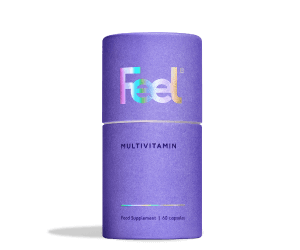

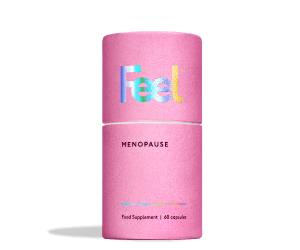
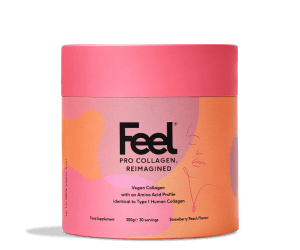
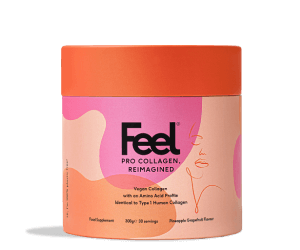

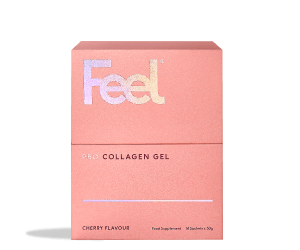
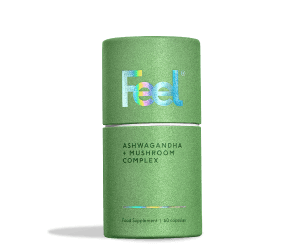
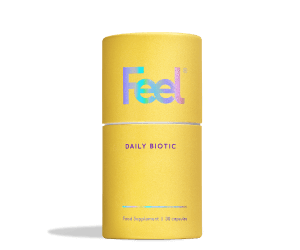
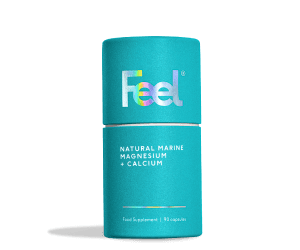

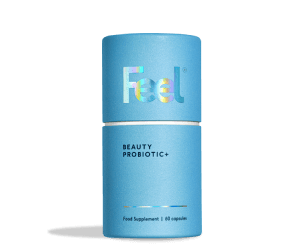





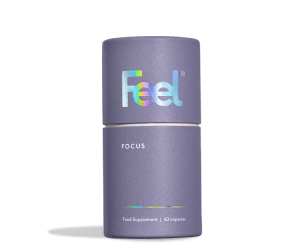



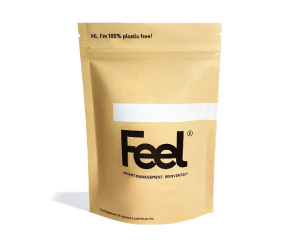

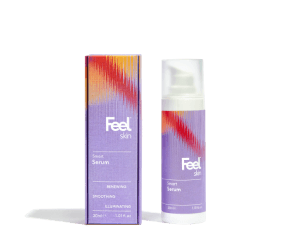




 Back
Back





